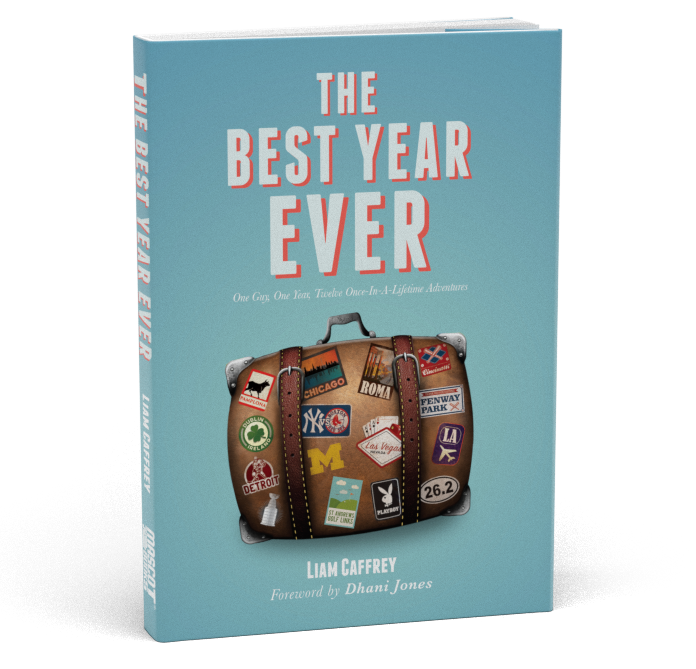4 Myths About the World Series of Poker, Busted
Right now, the Main Event at the World Series of Poker (WSOP) is playing out at the Rio in Las Vegas. If you’re into poker, you may have watched it on television and come away with a lot of misconceptions. If you’ve played Hold ‘Em or Omaha in a casino, you might think you know what it’s like to be at a WSOP table. I did. But trust me, you don’t. When I played at the WSOP for the chapter in The Best Year Ever, I found out that a lot of what I thought I knew was wrong. Here are some of the “facts” I found out were myths:
Myth #1: It’s social.
No way. It can’t be social because the WSOP is huge. You arrive at the convention center in this cavernous room with hundreds of tables. You check in, get a wristband and a number, and then find your table in a sea of tables.
When you finally start playing, nobody talks. It’s not like at a home game or a 2-4 limit game at the local card room; these people are serious. Half the players are wearing shades and earbuds to block everything out. There’s no banter, no messing around. This is business. In fact, some people get really annoyed when players talk at the table, as this blog post attests.
Myth #2: It’s fast-paced.
On TV, it looks like every other hand comes down to a showdown after the flop. That’s the magic of editing. On TV, you only see a fraction of the hands played, even at the final table. That’s because good players are tight players. They usually only play when they have monster hands like K-K or A-A. So when somebody raises before the flop, most of the time everyone else folds. It’s pretty boring.
When I played, we might go through 20 hands before we got past the flop (the first 3 community cards being turned over). Even if you put down the big or small blind (a mandatory pre-bet before cards are dealt), you probably fold if someone raises. That’s boring. Also, when you don’t play a lot of hands you don’t get to read the players. You can’t see who’s tight and who’s loose, who likes to check-raise and who’s likely to “limp in.” That means hands come down to math, and if you aren’t a savant at math, that can be rough.
Myth #3: All the players there are pros.
Not true. When I played, I saw guys I knew were professionals. I saw players who had learned their chops playing mostly online poker, who probably earned a living at the game but were unknown. And there were plenty of people like me: players with enthusiasm but who were definitely amateurs coming into the big boys’ house.
Do true amateurs have any chance of winning a WSOP bracelet? Not really. Poker is a game of skill, not luck. An amateur might win a run of hands, but over the long haul, skill—knowing the odds, knowing how to bet, developing the instincts to push in or fold at the right time, learning to see patterns—wins out. That’s why you see the same faces at final tables over and over: Nick Petrangelo, David Peters, Dario Sammartino and so on.
Myth #4: The end comes fast.
That’s not a myth. I was playing a super-tight game but finally, I got my cards: A-K, also known as Big Slick. Plus, I got another ace on the flop. Now I had top pair and the top kicker. So I bet. Another guy bet with me. I figured he had A-10 or something. We went all the way to the river, and bam! The river card’s a queen, he’s got A-Q, and he beats me with two pair. That’s why another nickname for A-K is “Anna Kournikova”—it looks great but rarely wins.
After that I was short stacked. I got A-Q suited and had to go all-in, and the other player called me with nothing—5-6 off suit. But he had one heart and caught hearts on the flop, turn and river to beat me with a flush. That happens: inexperienced players play hands they shouldn’t, and sometimes they get lucky. He got lucky and that was the end for me.
What did I learn? That poker as a business isn’t for me. It takes years to learn the patience and skill to win consistently, and that sucks the fun out of it. A guy I went to law school with went to MIT and was on that famous blackjack team from Bringing Down the House; after law school he moved to Vegas and became a pro poker player. But I like the social aspect of gambling. I want to have a good time. I’ll leave the business to the pros.


